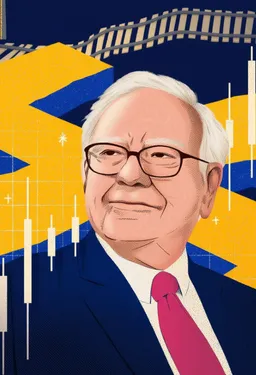The End of an Era: Warren Buffett’s Retirement and the Enduring Legacy of Rational Capitalism
May 2025 marks a seismic shift in global investing. Warren Buffett, the Oracle of Omaha, has announced his retirement from the helm of Berkshire Hathaway—quietly, humbly, yet with a resonance that will echo across capital markets for decades.
At 94, Buffett leaves behind more than a track record. He retires from philosophy, discipline, and a value system that has resisted the gravitational pull of short-termism, hype cycles, and financial engineering. And for investors, his departure raises not just questions of succession, but of continuity: Can rational, ethical, long-term investing survive the absence of its greatest champion?
Buffett’s 60-year streak of double-digit compounded returns is, simply put, unmatched. His stewardship of Berkshire Hathaway evolved it from a failing textile mill into a $900 billion juggernaut spanning insurance, railroads, consumer staples, and energy. His secret? No secret at all—discipline, patience, low turnover, and buying businesses with “economic moats.” In an era where momentum strategies dominate the headlines and artificial intelligence fuels trading algorithms, Buffett stayed committed to a deceptively simple formula: Buy quality, hold long, and understand what you own.
“He ran the overall company, and he was a great investor, which he was wired to do.” — Seth Klarman, Baupost Group.
Klarman’s observation captures Buffett’s uniqueness. Not merely an investor, not simply a CEO—Buffett was both. A dual-wielding capital allocator whose annual shareholder letters became required reading for analysts, economists, and policymakers alike.
Buffett, Bogle, and the Battle for the Soul of Capitalism
If Buffett was the godfather of active value investing, Jack Bogle, founder of Vanguard, was its ideological sparring partner. Bogle believed stock picking was a fool’s errand. Buffett proved him wrong for six decades. Yet, ironically, Buffett was one of Bogle’s most vocal supporters, praising his relentless pursuit to democratize investing and slash fees.
In 2016, Buffett wrote:
“Jack has helped millions of investors realize far better returns on their savings than they otherwise would have earned. He is a hero to them and me.”
The mutual admiration between Buffett and Bogle underscores a deeper truth: Both men, despite methodological differences, shared a moral philosophy. A belief in investor fairness, financial transparency, and stewardship over speculation.
Succession and the Shape of Berkshire 2.0
Much has been speculated about Berkshire’s post-Buffett future. With Greg Abel now formally in line as CEO and Todd Combs and Ted Weschler managing parts of the portfolio, there’s operational clarity. But there is no replacing Buffett’s ethos.
The Buffett approach—eschewing quarterly earnings guidance, avoiding fads, and refusing stock splits—is not a managerial policy. It is cultural DNA. The firm’s future success will hinge on how deeply this culture remains encoded.
*“Instead of a cold public notice, the shareholders, many of whom had been with Berkshire for decades, were there for that moment.” *– Ron Olson, former Berkshire board member.
Buffett's farewell, made in front of his loyal shareholder base in Omaha, speaks to his unparalleled commitment to shareholder alignment. At a time when corporate governance is too often reduced to boilerplate ESG disclosures, Buffett lived it. Not performatively. Personally.
The Investing World Without Buffett
Buffett’s retirement isn’t just the end of an era, it’s a test. Can financial markets still produce leaders who resist herd behavior, embrace ethical transparency, and prioritize long-term stakeholders over quarterly earnings?
Baupost’s Klarman puts it best:
“When you think about the 10 things about Warren that made him special, you keep coming up with new ones. It’s like peeling an onion. The deeper you go, the more layers you find.” What remains is not a vacuum, but a benchmark. Buffett showed the world that you don’t need to be flashy to succeed—just rational. Buffett's silence may be deafening in an age increasingly defined by algorithmic noise and narrative-driven valuations.
Conclusion: The Way Forward
Buffett may be stepping back, but his example stands tall lighthouse for investors navigating a sea of uncertainty. For investors, his legacy is more than a case study. It’s a roadmap:
- Allocate with discipline
- Think in decades, not quarters
- Act with integrity, even when markets don’t
The next Warren Buffett may never emerge. But his framework, the blend of rigorous valuation, patience, and moral clarity, remains our industry’s gold standard.

